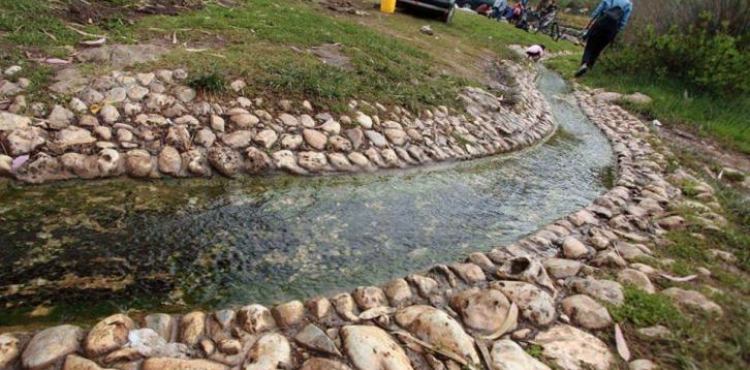The declared Israeli war on farmers in Wadi Qana does not stop at a certain time, and aims mainly to restrict them and expel them from this large natural reserve.
The torrential rainwater that fell this year and in the last depression, and flowed in the famous valley, made its way into the Palestinian interior, noting that the occupation had previously prevented the establishment of any water projects in the place under the pretext that it is a natural reserve.
Environmental specialist Ashraf Zuhd said: "The Wadi Qana area has natural springs that burst with heavy rain, and the valley´s rain basin was large and generous quantities of water flowed through it from far away. The historic valley path is wide, and the absence of water projects in the place makes millions The cubes of water go to waste without interest for the farmers and end inside, as the occupation benefits from it, as the course of the valley goes from east to west, and there are many areas in which Palestinians are prevented from benefiting from rainwater.
The mayor of Deir Istiya Said Zaidan said: “Wadi Qana is located within the municipality’s territory, and the occupation has for a long time prevented us from setting up water barriers to hold them in natural pools or wells. On the hills overlooking the valley, as for the farmer who owns the land and place, he is prevented from benefiting from this water, whether surface or ground, and in the summer the farmers face a stifling crisis to irrigate their trees, which are being fought by the Israeli Nature and Environment Authority.
Zidan added, "In Wadi Qana, the occupation insists on depriving the Palestinian of any right to his land, his water and agricultural wealth, and the stock of natural herbs."
It is noteworthy that Wadi Qana has an area of ​​ten thousand dunams and is the largest natural reserve in the northern West Bank, and it is rich in springs. During the settlement period, its surface water was stolen for the benefit of the eight settlements and industrial zones in Barkan.












